Double Trio
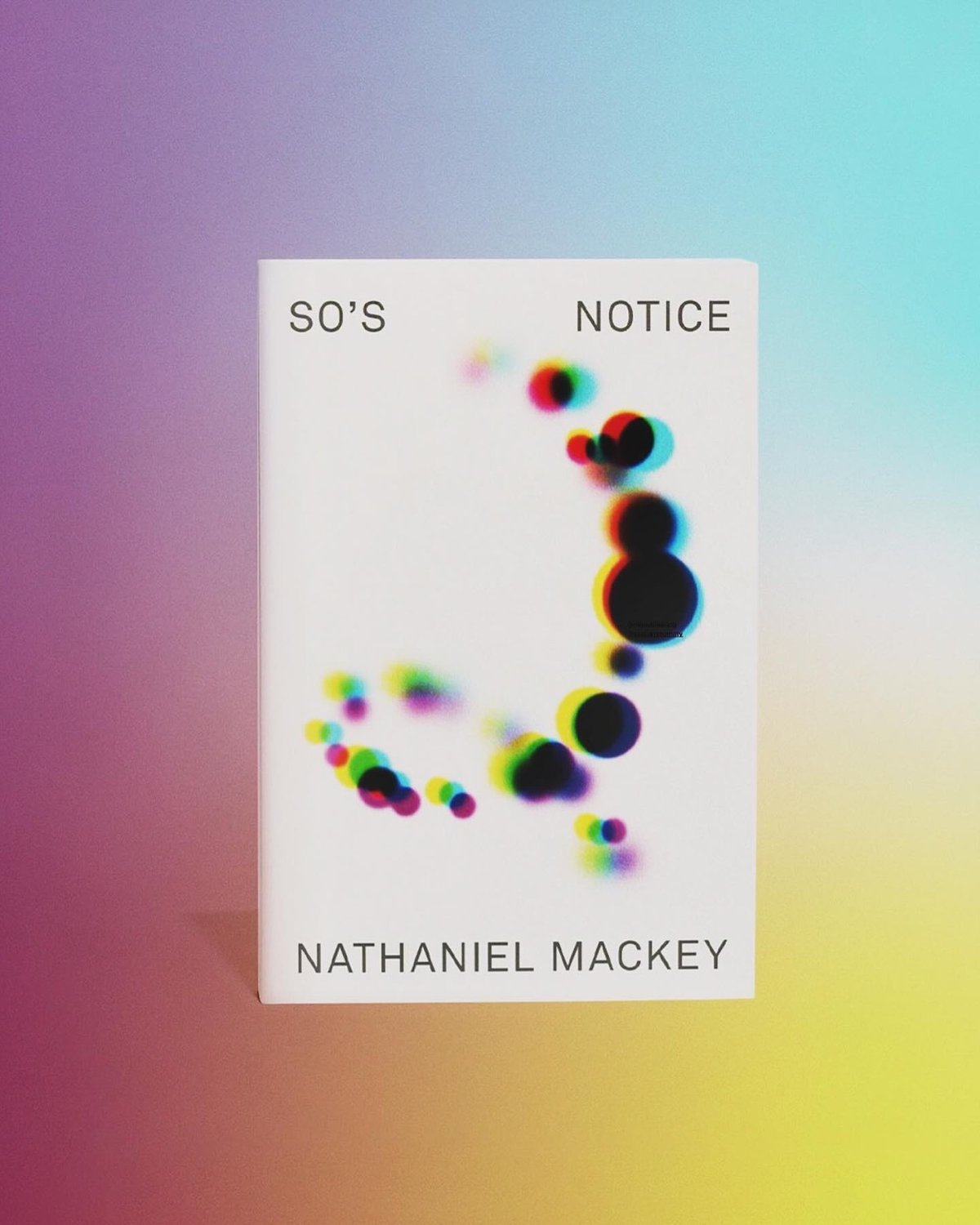
I love these covers designed by Rodrigo Corral for Nathaniel Mackey’s poetry collection Double Trio. You will likely recognize some of the other covers designed by Corral over the years.



This site is made possible by member support. 💞
Big thanks to Arcustech for hosting the site and offering amazing tech support.
When you buy through links on kottke.org, I may earn an affiliate commission. Thanks for supporting the site!
kottke.org. home of fine hypertext products since 1998.

I love these covers designed by Rodrigo Corral for Nathaniel Mackey’s poetry collection Double Trio. You will likely recognize some of the other covers designed by Corral over the years.
From earlier this summer, The Kidnapping I Can’t Escape is a great piece by Taffy Brodesser-Akner about the real-life kidnapping that inspired her recent novel, Long Island Compromise.
Jack was home safe. He had survived his kidnapping. But the actual kidnapping is not what this story is about, if you can believe it. It’s about surviving what you survived, which is also known as the rest of your life.
It’s also about, spoiler alert, trauma.
Tolstoy tells us that all happy families are alike and that each unhappy family is unhappy in its own way. A few years ago, I wrote a different novel, my first novel, about divorce, which was inspired in part by the divorce stories of several people I know, and I came to the conclusion that, actually, all divorces are exactly alike. I tell you this because I’ve now come to understand the same thing about trauma: Happy, well-adjusted people are all different. The traumatized are exactly alike. I’m about to tell you a story that is nothing like a violent kidnapping — almost laughably so — but what I’ve learned over the years is that trauma is trauma. Something terrible happens, beyond what is in our own personal capacity to cope with, and the details don’t matter as much as the state we’re thrown into. Our bodies and brains have not evolved to reliably differentiate a rape at knife point from a job loss that threatens us with financial ruin or from the dismantling of our world by our parents’ divorce. It’s wrong, but explain that to your poor, battered autonomic nervous system.
Like I said, it’s a great piece and you should read the whole thing. The piece is also available, with some additional author commentary, on this episode of The Daily podcast.

In 1950, master photographer Irving Penn set up a simple studio in Paris and started to photograph people of all kinds of professions, each wearing their work clothes and carrying the tools of their trade.

Working in the tradition of representing the petits métiers, Penn photographed fishmongers, firefighters, butchers, bakers, divers, baseball umpires, chefs, bike messengers, and sellers of goods of all kinds.

Penn continued photographing workers in New York and London, collecting the photos into a project called Small Trades.

Penn said of the project:
Like everyone else who has recorded the look of tradesmen and workers, the author of this book was motivated by the fact that individuality and occupational pride seem on the wane. To a degree everyone has proved right, and since these photographs were made, London chimney sweeps have all but disappeared and in New York horseshoers — hard to find in 1950 — now scarcely exist.
A possible companion to Penn’s photographs: Studs Terkel’s Working: People Talk About What They Do All Day and How They Feel About What They Do. (Fun fact: Terkel and his editor got the idea for Working from Richard Scarry’s children’s book, What Do People Do All Day?)
Well, I don’t know how I missed this, but the fantastic HBO series My Brilliant Friend is back for its fourth and final season. The series is based on Elena Ferrante’s Neapolitan novels and this season covers the events of the fourth book, The Story of the Lost Child.
I love My Brilliant Friend — it’s one of my all-time favorites and might be the best show you’re not watching. I agree completely with Clare Thorp’s description of it as “criminally underrated”.
As the trailer above shows, the previous two lead actors (who were excellent) have been replaced by older ones, a change I’m a little apprehensive about, but everything else about the show has been pitch perfect so I’m gonna trust the process. From an NPR piece on the new season:
“This child is you, when you were a child,” Maiorino recalled her friend Alessia saying about the novel’s titular protagonist and sometimes antagonist Lila. Like Lila and her friend Lenù, Maiorino is from Naples and stayed in the south, while her friend left to study in the north of the country, get married and have children.
Art has now truly imitated life for Maiorino, who plays Lila in the fourth season of the series.
New episodes of My Brilliant Friend started airing on HBO last night and will drop every Monday for the next 10 weeks. Go check it out!

Richard Powers (author of the wonderful The Overstory) is coming out with a new book later this month called Playground. I found out via this New Yorker profile of Powers by Hua Hsu, which describes the new book like so:
This month, Powers will publish his fourteenth novel, “Playground,” a book that initially seems like a way for him to add “ocean guy” to his C.V. It essentially comprises three story lines. The first is about Todd Keane, an all-conquering tech giant. The onset of dementia has compelled him to revisit his happiest memories, which involve Rafi Young, a close friend of his teens and twenties from whom he is now estranged. A second story line concerns a close-knit, dwindling community on Makatea, an island in French Polynesia, that must decide how to respond to an offer from wealthy American investors who want to launch a libertarian seasteading enclave nearby. The third follows Evelyne Beaulieu, a famous oceanographer, as she reflects on her life’s work and all the destruction she has witnessed: the collapse of fisheries and the disappearance of various species; the acidification of the seas; the dredging, in a single afternoon, of entire “coral cities that had taken ten thousand years to grow.” There’s also a Silicon Valley-inspired twist, involving Todd’s investments in social networking and artificial intelligence, that brings these narrative threads together.
Powers was a participant in the personal-computing revolution of the seventies and the rise of the Internet in the nineties, and he is deeply attuned to the potential cataclysms that technological innovation could invite. “I had this sense that we were living through this ethical moment again,” he said, of the inspiration for the new book.
You can preorder Playground on Amazon or at Bookshop.org.
In her excellent link-laden newsletter Curious About Everything, my friend Jodi Ettenberg highlighted this passage from Steve Silberman, the author of Neurotribes: The Legacy of Autism and the Future of Neurodiversity who died last week (italics mine):
Sometimes the word “neurodiversity” is framed as if it’s merely a political stance or a political conviction. It’s not. It’s a living fact, like biodiversity in rain forests. We clearly have people with many different kinds of minds. There are people with dyslexia, there are people with ADHD, there are people with autism, there are people at all points of the spectrum. And all of these labels are the names of “disorders,” but if you look at them another way, they’re just different kinds of human operating systems.
We have to get beyond the fact that these conditions were discovered by people looking for forms of illness, basically, and recognize that they’re just there. They’re part of the human fabric. They always have been. People with these conditions have been making contributions to the evolution of science, art and technology for centuries — invisibly, mostly. You know, most of the labels were invented in the 20th century. We have to start looking at those labels, instead of the checklist of modern disorders, as human resources that we have not learned to tap fully because we’ve been so busy treating those people like carriers of disorder.
You can read the full 2015 interview with Silberman from which that passage was pulled.
P.S. The Kindle version of Neurotribes is on sale for $4.99 right now.
Amazon’s series The Rings of Power hasn’t gotten great reviews and Evan Puschak hypothesizes that, unlike movies, TV is not the right medium to tell Tolkien’s stories.
I’m skeptical that the Lord of the Rings, or any other story from Tolkien’s mythology, can really work as a TV series. It’s a square peg round hole situation. TV as a form just doesn’t play to the strengths of Tolkien’s vision.
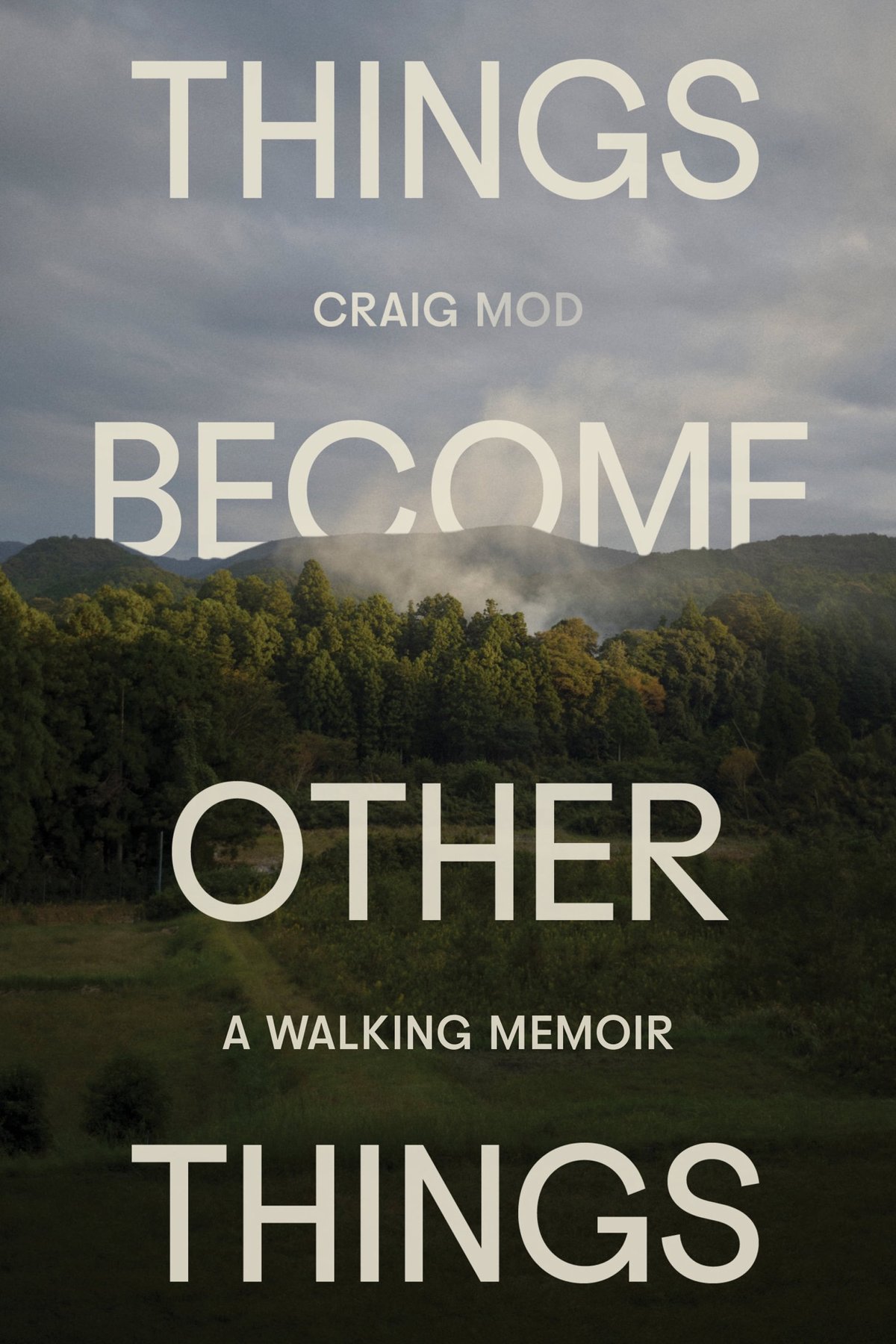
My pal Craig Mod has a book coming out in May 2025 called Things Become Other Things: A Walking Memoir. Here’s part of the synopsis:
Photographer and essayist Craig Mod is a veteran of long solo walks. But in 2021, during the pandemic shutdown of Japan’s borders, one particular walk around the Kumano Kodo routes — the ancient pilgrimage paths of Japan’s southern Kii Peninsula — took on an unexpectedly personal new significance. While passing the peninsula’s shrinking villages, Mod found himself reflecting on his own childhood in a post-industrial American town, his experiences as an adoptee, his unlikely relocation to Japan as a student at age nineteen, and his relationship with one lost friend, whose life was tragically cut short after their paths diverged. As the days passed, he considered why he has walked so rigorously and religiously during his twenty-five years as an immigrant in Japan, contemplating the power of walking itself. For Mod, solo walks are a tool to change the very structure of his mind, to better himself, and to bear witness to a quiet grace visible only when “you’re bored out of your skull and the miles left are long.”
The way Craig has gone about writing and publishing this book is unique. In November 2023, he published an exquisitely designed fine art edition with color photography, limited to 2500 copies (of which ~900 remain), and priced at $100. The mass market version, published by Random House, is an expanded version of the fine art edition retailing for $31 ($15 on Kindle). Craig explains:
Wait? Didn’t you already publish this book in November 2023? Yes! Yes we did! (Where we = me, Craig.) That was the fine art edition. Limited in quantity. Printed and bound in Japan, in full color on Heidelberg presses with a silk screened and foil stamped cover. Retailing for $100. This Random House edition is a significant expansion of that fine art edition — more than double the length in text with a dozen additional photographs. There is so much more context about me and my relationship to Japan, and more Japanese historical context as well. The Random House edition is printed and bound as a standard trade hardcover (and retails for $31 USD), with images printed in black and white. I’m tempted — almost! — to call them different books that emerged from the same source material.
It’ll be fascinating to see how this plays out.
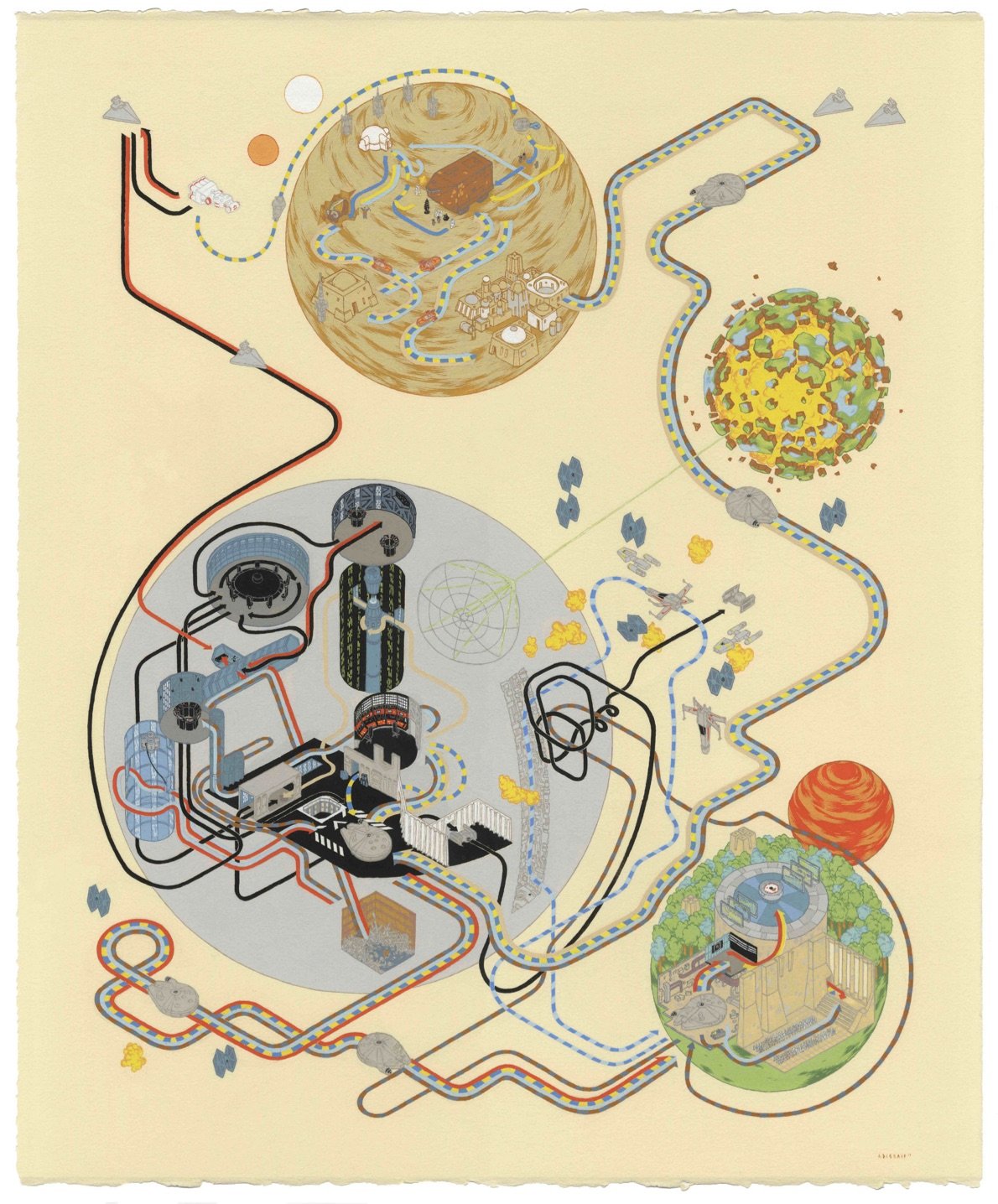
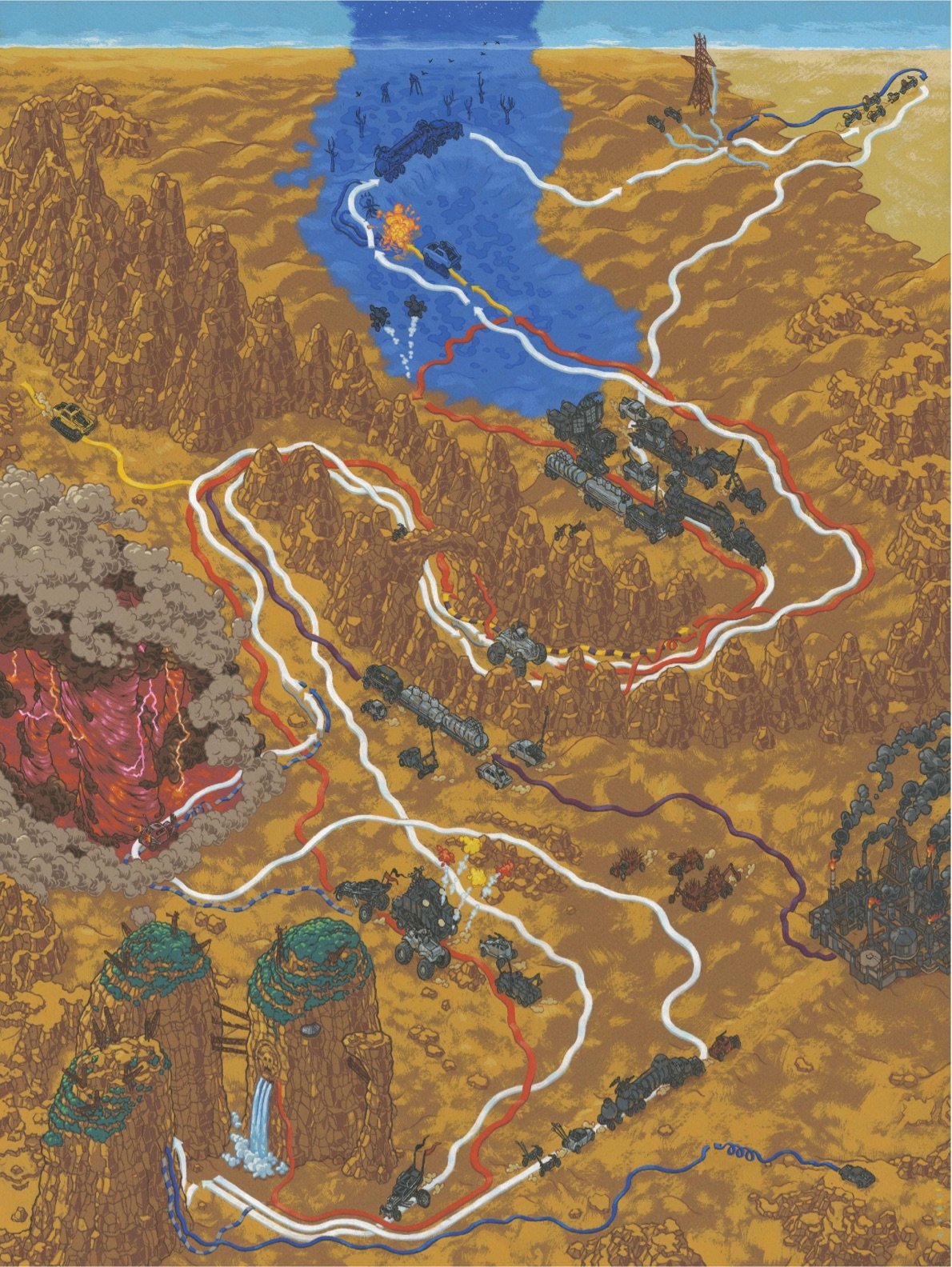

Artist and illustrator Andrew DeGraff makes maps that show where the characters travel during movies — imagine Billy’s trail maps from Family Circus but for films like Back to the Future, The Breakfast Club, Pulp Fiction, and Mad Max: Fury Road.
DeGraff collected these maps into a book called Cinemaps: An Atlas of 35 Great Movies.
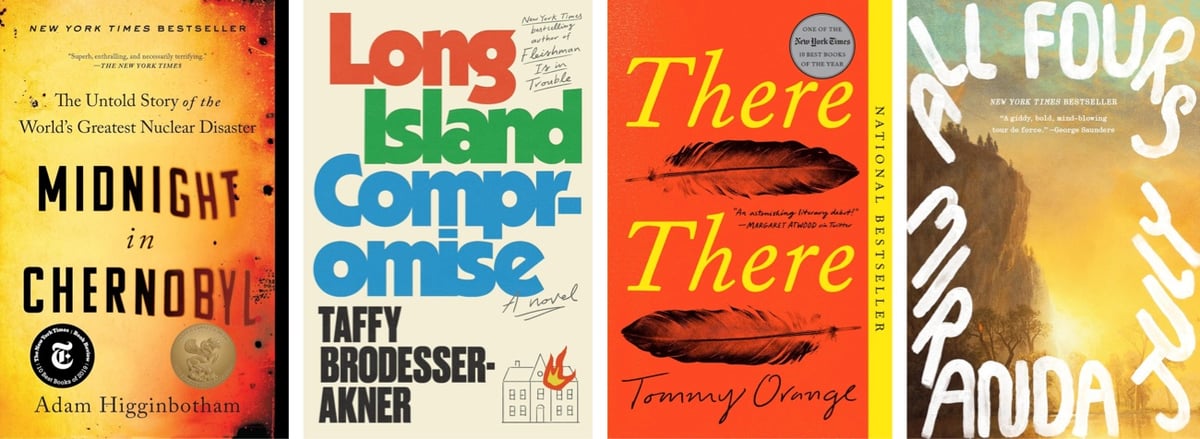
I’ll start. I finished the superb Midnight in Chernobyl by Adam Higginbotham and Miranda July’s excellent All Fours within the last few weeks. I’m about halfway through Long Island Compromise by Taffy Brodesser-Akner. I could not finish Frankenstein — I was so excited and the book was so not my thing.
A friend recommended that I read North Woods by Daniel Mason next but I’ve also got my eye on There There by Tommy Orange and The Missing Thread by Daisy Dunn (which I posted about this morning). It’s just over a month until Sally Rooney’s Intermezzo drops…the excerpt piqued my already excited interest.
What’s everyone else reading these days? Or are looking forward to reading?

No surprise that Jamelle Bouie’s short videos are as interesting and informative as his NY Times columns. In a recent TikTok video (mirrored on Instagram), Bouie recommended a book called Racecraft: The Soul of Inequality in American Life by sociologist Karen Fields and historian Barbara Fields and nutshelled the premise:
The way the Fields sisters see it, and I think they’re right: race is a fiction, it doesn’t exist biologically, it’s a social construction, it’s designed to categorize, and it often obscures far more than it explains. But racism is real, right? Racism, the action, is real, it’s material, it affects people’s lives, it has life or death stakes, it structures the way that we engage in, and are received by, the society in which we live.
The example they give in the beginning of the book is: imagine a Black police officer is killed by one of his white colleagues. He’s undercover and he’s shot and killed. The news would say that this police officer was killed because he was Black. But the Fields sisters would say, wait a sec. Did the white officer shoot because he was white? That the Blackness caused the death, that the whiteness caused the shooting? No, of course not. What happened was that a white officer relied on racist assumptions about people of African descent to come to a set of conclusions, then acted on those conclusions.
I am reading All Fours by Miranda July right now and it hooked me right out of the gate. Granta published a excerpt of the book back in April – you can use it as a barometer for whether you’d like to try the whole thing.
I came into the house my usual way, like a thief. I turned the lock slowly and shut the door with the handle all the way to the left to avoid the click of the lock. Took off my shoes. Rolled my feet from heel to toe, which is how ninjas walk so silently. I was often two or three hours late because I had trouble admitting that I was planning to talk to Jordi for five hours. But how could it be any shorter, given that it was my one chance a week to be myself? My heart was pounding as I tiptoed through the living room. I know the quietest way to wash up, too: picking up and putting down the cup and face wash with this technique where you pretend each thing is heavier than it is. Imagine the cup is made of brick, so that as you put it down you’re also lifting it up, resisting its weight — the opposite of this would be just dropping it, letting gravity put it down. When I walk past Harris’s bedroom I think glide, glide, glide.
See also Edith’s diary comics: Reading Miranda July’s All Fours.
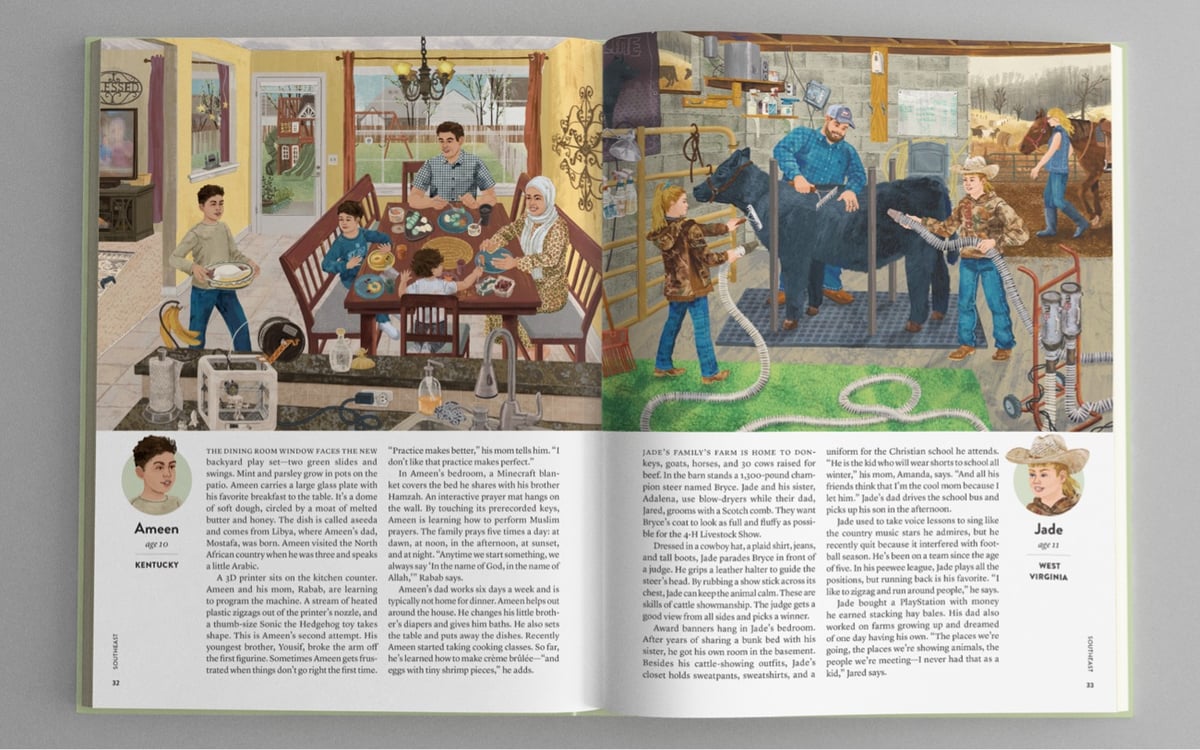
Matt Lamothe and Jenny Volvovski wrote an illustrated a new book called All About U.S. (Bookshop), which features a look into the lives of 50 kids from the US, one from each state. From the website:
All About U.S. is a non-fiction children’s book, featuring 50 real kids from each state in the United States. The goal of this book is to create an authentic portrait of the country, showcasing the diversity of its people and the vastness of its natural landscapes.
We conducted over 100 hours of interviews, received 20 hours of home tour footage and hundreds of photographs, to create the illustrations and short stories about each family.
It sounds like they worked hard at finding kids from all kinds of different backgrounds (especially with just 50 slots to fill):
- Families who live in a variety of dwellings, from houseboats and yurts to farms, Native reservations, and Air Force bases
- Children with adoptive families, stepfamilies, single-parent families, two moms or dads, and those who live with their grandparents
- Children living with health conditions such as leukemia and muscular dystrophy
- Families from a range of social, religious, and economic backgrounds
This looks like a fantastic book — you can read more about it on the website or pre-order from Amazon or Bookshop.
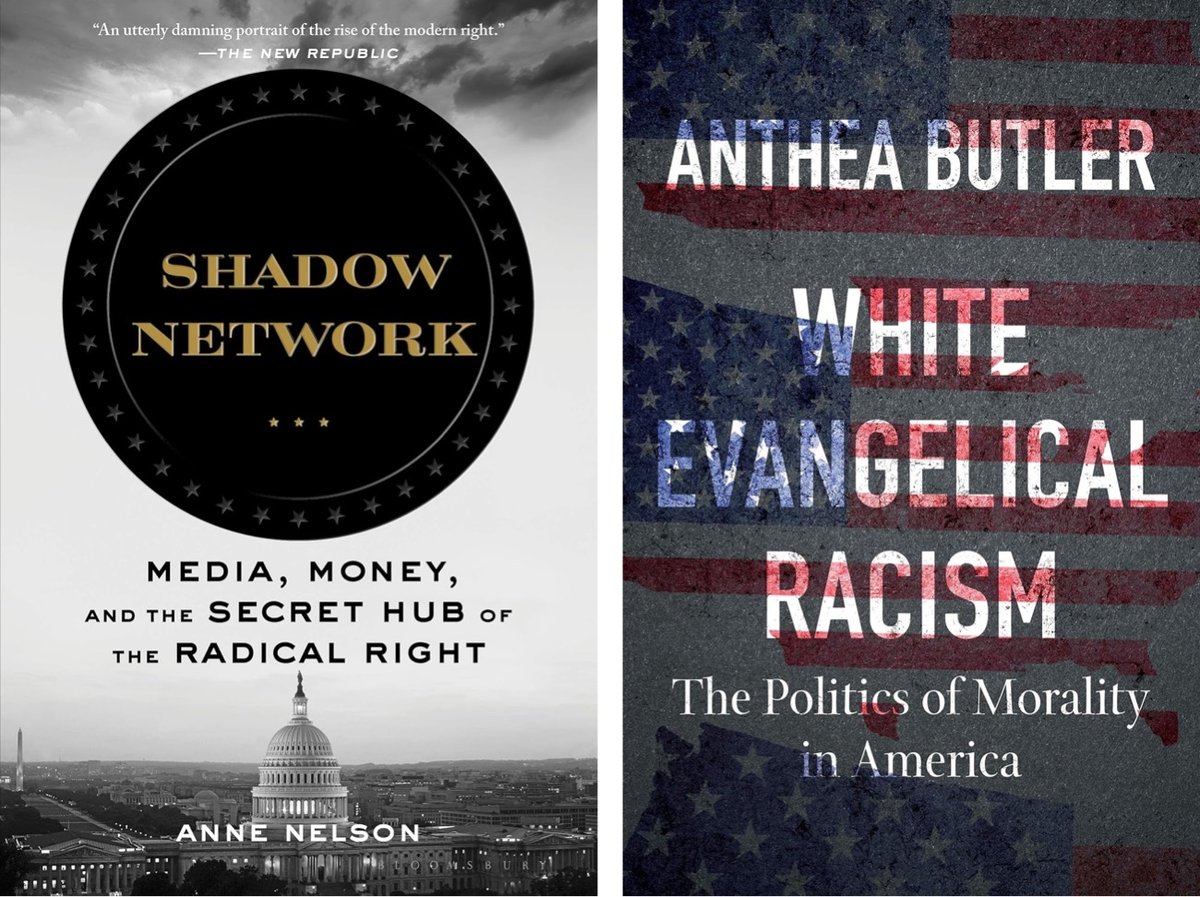
Dr. Mara Einstein is an author and media studies professor with a special interest in religion & cults and she recently shared a list of books to read and movies to watch “in order to get up to speed on Project2025 and where it came from” (specifically the evangelical aspects). Her first two book picks:
Shadow Network is the best book I’ve read that explains the Republicans’ strategy over the last 50 years. You will come to hate Paul Weyrich, and rightfully so.
Anthea Butler is the chair of religion at University of Pennsylvania. [White Evangelical Racism] ties together the connection among Rs, evangelicals and the racism it tries to hide.
And her top documentary pick:
[Bad Faith] is *the* best documentary on the topic and if you don’t do anything else, watch this. It’s free on Tubi and 99 cents on other outlets.
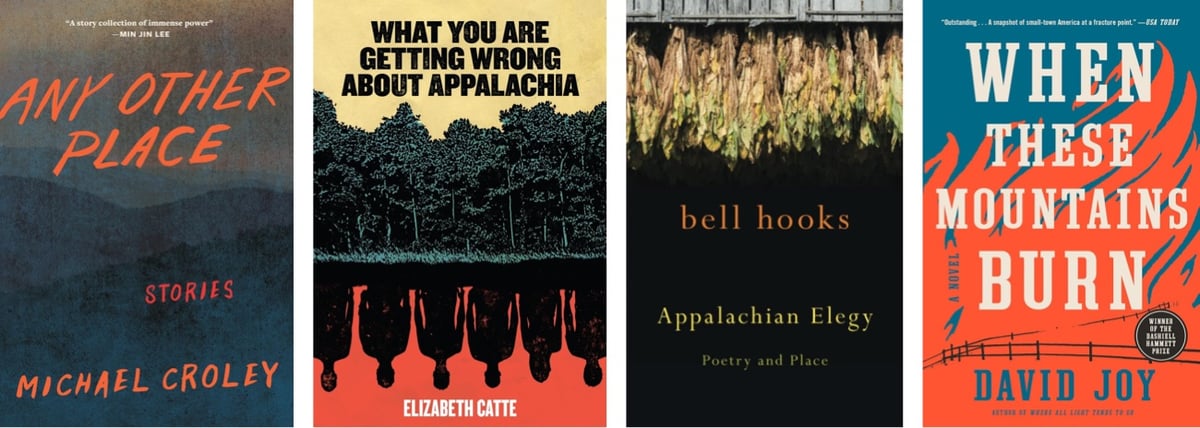
From Kendra Winchester at Book Riot:
Since Hillbilly Elegy came out in 2016, I’ve experienced countless people claiming to now “understand” where I come from and what Appalachian people are like. But they don’t think of my childhood watching my dad lose himself while arranging music on his piano or my grandfather tenderly nurturing plants in his ridiculously large garden. Instead, they imagine the stereotypes of J.D. Vance’s version of Appalachia, where the entire region is made up of poor rural white people consumed with violence who have no one to blame but themselves for their life circumstances.
Vance is of course the Republican VP candidate who once called Trump “America’s Hitler”, supports total abortion bans, and says he would not have certified the results of the 2020 election.
Winchester goes on to recommend fifteen books about Appalachia that will provide a clearer view of the region and the people who live there. They include:
What You Are Getting Wrong About Appalachia by Elizabeth Catte. “If you’re still wondering why Hillbilly Elegy is so problematic, I’d suggest starting with What You’re Getting Wrong About Appalachia.”
Appalachian Elegy: Poetry and Place by bell hooks. “In this poetry collection, she laments how Black Appalachians are all too often left out of narratives about Appalachia.”
Any Other Place by Michael Croley. “Croley’s perspective as a Korean American informs his writing as his stories deal with many topics around race, identity, and belonging.”
When These Mountains Burn by David Joy. “When These Mountains Burn features two men deeply impacted by the opioid crisis in Appalachia.”
See also Hillbillies Need No Elegy, an excerpt from Appalachian Reckoning: A Region Responds to Hillbilly Elegy.


Links:
Have you read it? What did you think?
I just found out over the weekend about my pal Emily Witt’s new book, Health and Safety, and lo, there’s an excerpt of it in the fiction issue of the New Yorker. I didn’t know what to include here, so I just took the opening paragraphs…the rest of it is pretty intense.
On March 6, 2020, Andrew and I went to a rave. If it weren’t for what happened later, I don’t think it would have stood out in my memory. A couple of days before, I had met a friend at the movie theatre at the Brooklyn Academy of Music, to see “Portrait of a Lady on Fire.” It was the first time I saw someone trying to open a door with his elbows. My friend and I ordered separate popcorns as a hygienic precaution. I remember someone behind us coughing, and being aware of it.
On Friday night, before the party, I put a single drop of LSD into a glass of water. I drank half, and Andrew drank the other half. For the next couple of hours, while he made beats in his studio, I lay in bed with my eyes closed, listening to one of the final mixes made by Andrew Weatherall, a British d.j. who had got his start in the nineteen-eighties club scene and had recently died. The tracks had titles like “Jagged Mountain Melts at Dawn” and “The Descending Moonshine Dervishes.”
I sat up in bed, and, as the waves of acid broke over me, I wrote down some thoughts. I was a magazine writer, but I was thinking of going to Brazil to write a book about the Amazon rain forest. The problem with trying to write a book about the Amazon rain forest was that it was a place that was much better left alone, like Everest, or the moon. I looked over at the cat, who was sitting on an ottoman, her eyes two glowing lamps of annoyance. It was time to go out.
I read Witt’s first book, Future Sex, and really enjoyed it, so I’m looking forward to Health and Safety (Bookshop).
Heather Cox Richardson writing last night for her Letters from an American newsletter:
Today the United States Supreme Court overthrew the central premise of American democracy: that no one is above the law.
It decided that the president of the United States, possibly the most powerful person on earth, has “absolute immunity” from criminal prosecution for crimes committed as part of the official acts at the core of presidential powers. The court also said it should be presumed that the president also has immunity for other official acts as well, unless that prosecution would not intrude on the authority of the executive branch.
This is a profound change to our fundamental law — an amendment to the Constitution, as historian David Blight noted. Writing for the majority, Chief Justice John Roberts said that a president needs such immunity to make sure the president is willing to take “bold and unhesitating action” and make unpopular decisions, although no previous president has ever asserted that he is above the law or that he needed such immunity to fulfill his role. Roberts’s decision didn’t focus at all on the interest of the American people in guaranteeing that presidents carry out their duties within the guardrails of the law.
But this extraordinary power grab does not mean President Joe Biden can do as he wishes. As legal commentator Asha Rangappa pointed out, the court gave itself the power to determine which actions can be prosecuted and which cannot by making itself the final arbiter of what is “official” and what is not. Thus any action a president takes is subject to review by the Supreme Court, and it is reasonable to assume that this particular court would not give a Democrat the same leeway it would give Trump.
There is no historical or legal precedent for this decision.
As I’ve noted before, Richardson’s book Democracy Awakening: Notes on the State of America is an excellent way to get yourself up to speed on the origins of this decades-long project by the Republicans to subvert American democracy. From a review of the book by Virginia Heffernan:
She has an intriguing origin point for today’s afflictions: the New Deal. The first third of the book, which hurtles toward Donald Trump’s election, is as bingeable as anything on Netflix. “Democracy Awakening” starts in the 1930s, when Americans who’d been wiped out in the 1929 stock market crash were not about to let the rich demolish the economy again. New Deal programs designed to benefit ordinary people and prevent future crises were so popular that by 1960 candidates of both parties were advised to simply “nail together” coalitions and promise them federal funding. From 1946 to 1964, the liberal consensus — with its commitments to equality, the separation of church and state, and the freedoms of speech, press and religion — held sway.
But Republican businessmen, who had caused the crash, despised the consensus. Richardson’s account of how right-wingers appropriated the word “socialism” from the unrelated international movement is astute. When invoked to malign all government investment, “socialism” served to recruit segregationist Democrats, who could be convinced that the word meant Black people would take their money, and Western Democrats, who resented government protections on land and water. This new Republican Party created an ideology that coalesced around White Christianity and free markets.
For their fiction issue, the New Yorker has an exclusive excerpt from Sally Rooney’s forthcoming book, Intermezzo.
Ivan is standing on his own in the corner while the men from the chess club move the chairs and tables around. The men are saying things to one another like: Back a bit there, Tom. Mind yourself now. Alone, Ivan is standing, wanting to sit down but uncertain which of the chairs need to be rearranged still and which are in their correct places already. This uncertainty arises because the way in which the men are moving the furniture corresponds to no specific method Ivan has been able to discern. A familiar arrangement is slowly beginning to emerge — a central U shape composed of ten tables, with ten chairs along the outer rim of the shape, and a general seating area around the outside — but the process by which the men are reaching this arrangement seems haphazard. Standing on his own in the corner, Ivan thinks with no especially intense focus about the most efficient method of arranging, say, a random distribution of a given number of tables and chairs into the aforementioned shape. It’s something he has thought about before, while standing in other corners, watching other people move similar furniture around similar indoor spaces: the different approaches you could use, if you happened to be writing a computer program to maximize process efficiency. The accuracy of these particular men would be, Ivan thinks, pretty low, like actually very low.
You can also listen to Rooney reading the excerpt. You can preorder Intermezzo at Amazon or Bookshop.
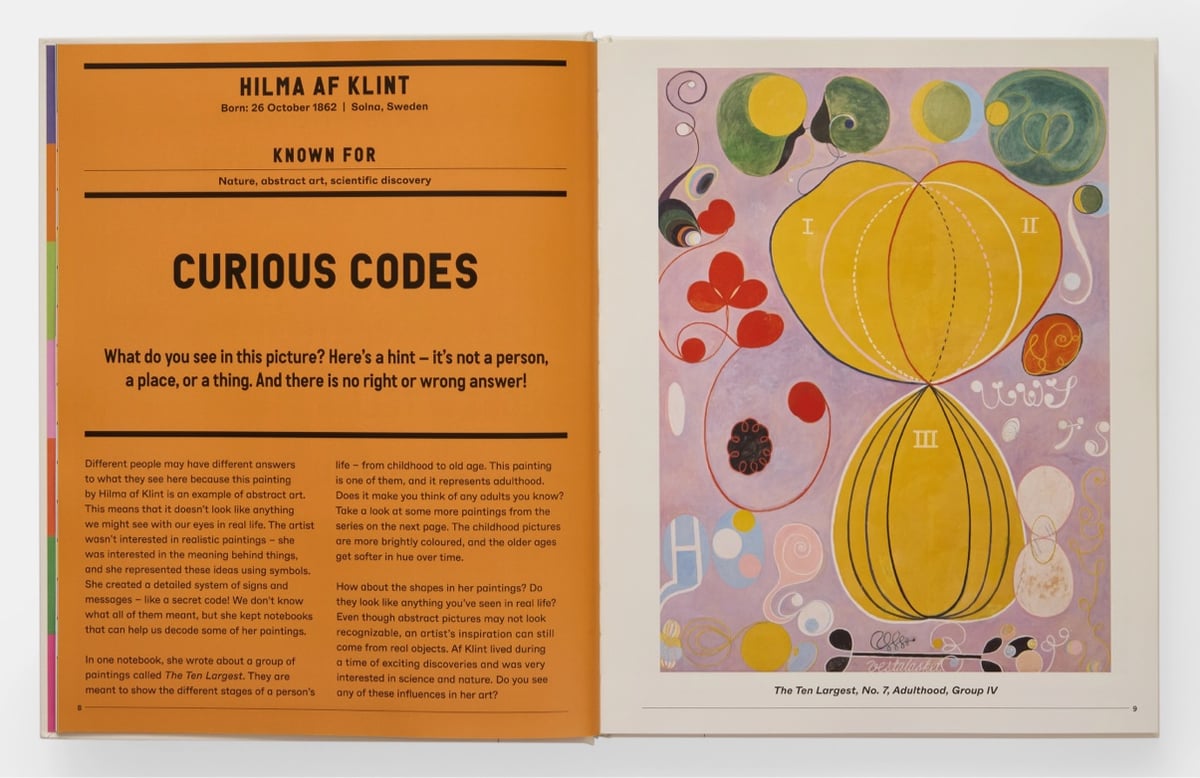

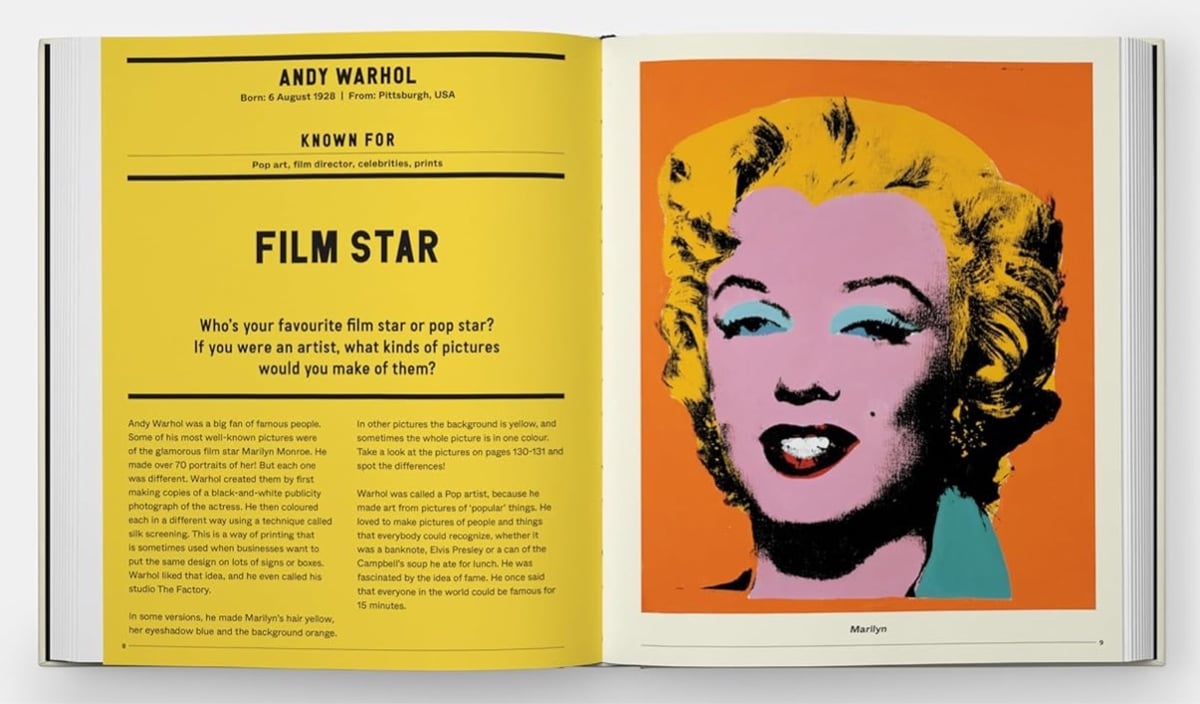
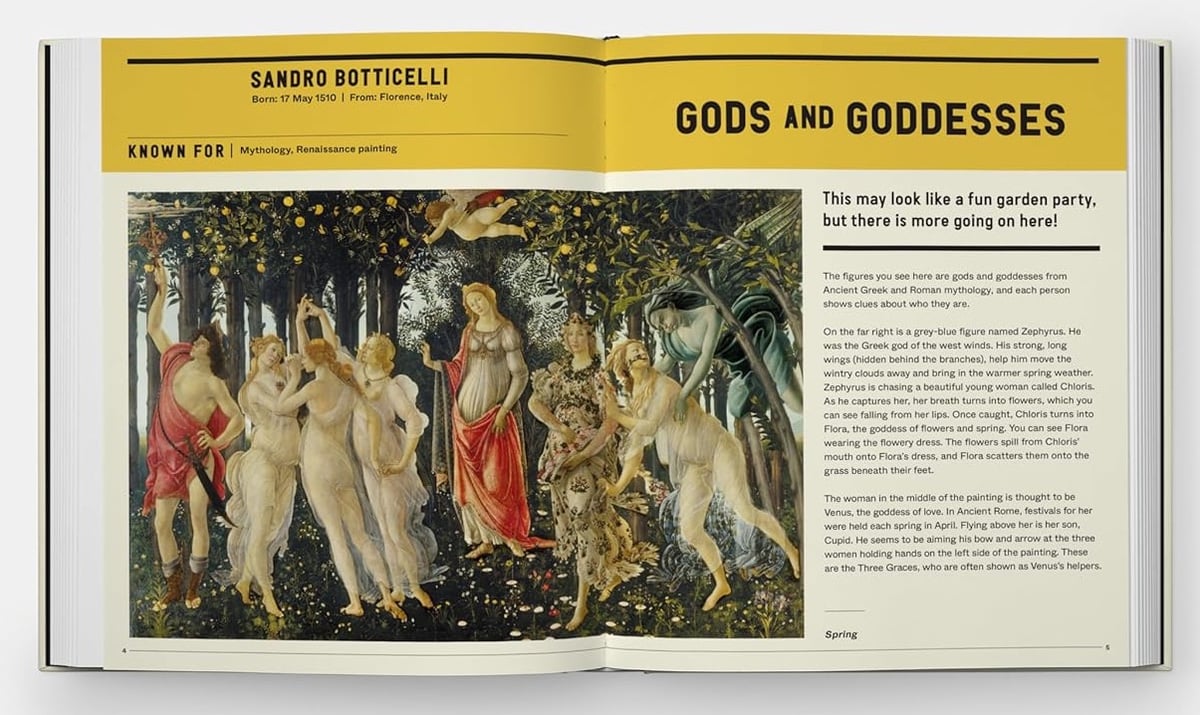
Phaidon has released a new version of their classic The Art Book for Children. Aimed at kids aged 7-12, the new version includes a selection of contemporary artists alongside familiar favorites.
This single volume features 60 artists through a wide range of large-scale, full-page reproductions of their artworks, including paintings, photographs, sculptures, video, prints, and installations from across time and space. Each page showcases defining artworks by the artists, combined with an interactive and informative conversation, giving relatable and memorable contexts for children, and inspiring a curiosity and appreciation for the Visual Arts that will continue into adulthood.
I’ve grown to love art as an adult but I don’t remember ever noticing or caring about any art when I was a kid. If this book had dropped into the lap of a young Jason, I wonder if it would have sparked anything?
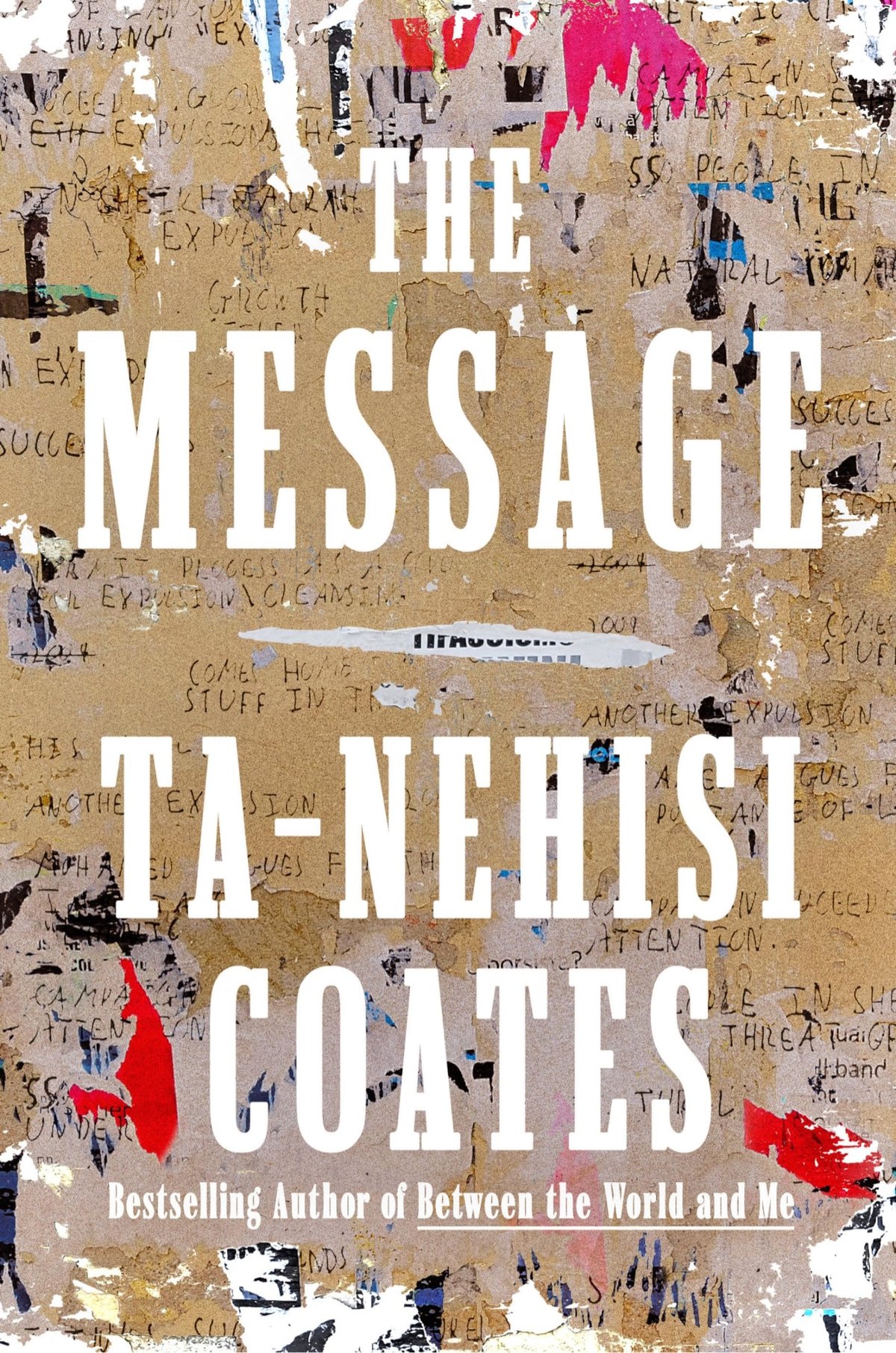
Ta-Nehisi Coates is coming out with a new book this fall (Oct 1, 2024) called The Message and it sounds really interesting:
Ta-Nehisi Coates originally set out to write a book about writing, in the tradition of Orwell’s classic “Politics and the English Language,” but found himself grappling with deeper questions about how our stories — our reporting and imaginative narratives and mythmaking — expose and distort our realities.
In the first of the book’s three intertwining essays, Coates, on his first trip to Africa, finds himself in two places at once: in Dakar, a modern city in Senegal, and in a mythic kingdom in his mind. Then he takes readers along with him to Columbia, South Carolina, where he reports on his own book’s banning, but also explores the larger backlash to the nation’s recent reckoning with history and the deeply rooted American mythology so visible in that city — a capital of the Confederacy with statues of segregationists looming over its public squares. Finally, in the book’s longest section, Coates travels to Palestine, where he sees with devastating clarity how easily we are misled by nationalist narratives, and the tragedy that lies in the clash between the stories we tell and the reality of life on the ground.
Coates was recently a guest on the Longform podcast and he talked about one of the central themes of the book (“how the stories we tell — and the ones we don’t — shape our realities”):
There’s a certain sector of politics on the right that really correctly understands that cultural issues are very, very powerful, actually. That books and movies and TV shows and monuments and statues and art, all that stuff actually really does matter and has a huge effect on what we consider actual politics, which is to say voting, legislation, etcetera. Because our whole notions of humanity are derived from these things. They’re derived from, you know, stories. They’re derived from the news. They’re derived from, you know, art. They derive from statues. That’s how we decide, you know, who is what.
And the reason, you know it’s powerful is because in previous eras — for instance, when during the era of redemption, it became extremely important to destroy the multiracial democracies that have been raised in the South. They went after the history. They went after the stories. That’s where all those monuments come from. Those monuments are not just raised out of nothing. It’s not a mistake that it wasn’t until the early 1960s the Southern states started putting up the Confederate battle flag. They understood the power of the symbol. They know. They know. And now they find themselves in an era where there is a very real cultural war, by which I mean: the hegemony that they once enjoyed over the culture is actually actively being challenged, and that is a long term threat to the politics that they represent.
So, I mean, a lot of people say, oh, this is a distraction. I actually think it’s quite intelligent. While it’s not the response I would have, I don’t think it’s a deluded response or delusional response, rather.
It sounds fascinating — I definitely preordered.
In an adaptation from her forthcoming book, Frostbite: How Refrigeration Changed Our Food, Our Planet, and Ourselves, Nicola Twilley shares how refrigeration changed the food we eat and even how it tastes (you tomato and strawberry lovers know what I’m talking about):
The opportunity to consume frosty drinks and desserts opened up an entirely new vocabulary of sensation. Some found the cold shocking at first. “Lord! How I have seen the people splutter when they’ve tasted them for the first time,” a London ice-cream vender recalled in 1851. One customer — “a young Irish fellow” — took a spoonful, stood statue still, and then “roared out, ‘Jasus! I am kilt. The coald shivers is on to me.’” The earliest recorded description of brain freeze seems to have been published by Patrick Brydone, a Scotsman travelling in Sicily in the seventeen-seventies. The victim was a British naval officer who took a big bite of ice cream at a formal dinner. “At first he only looked grave, and blew up his cheeks to give it more room,” Brydone wrote. “The violence of the cold soon getting the better of his patience, he began to tumble it about from side to side in his mouth, his eyes rushing out of water.” Shortly thereafter, he spat it out “with a horrid oath” and, in his outrage, had to be restrained from beating the nearest servant.
And I wasn’t aware of this:
Leaving aside its suggestion that one serve “Molded Lamb with Fruit,” Kelvinator wasn’t wrong to claim that refrigeration could make leftovers taste better. After all, chemical reactions continue in the cold, albeit slowly, and some of them improve flavor. Several years ago, Cook’s Illustrated investigated this process by serving fresh bowls of beef chili, in addition to French onion, creamy tomato, and black-bean soups, alongside portions that had been made two days earlier. Testers preferred the fridge-aged versions, describing them as “sweeter,” “more robust-tasting,” and “well-rounded.”
Twilley also recently shared a preview on the podcast she co-hosts, Gastropod: The Birth of Cool: How Refrigeration Changed Everything. Frostbite is out on June 25 and is available for preorder on Amazon or Bookshop.
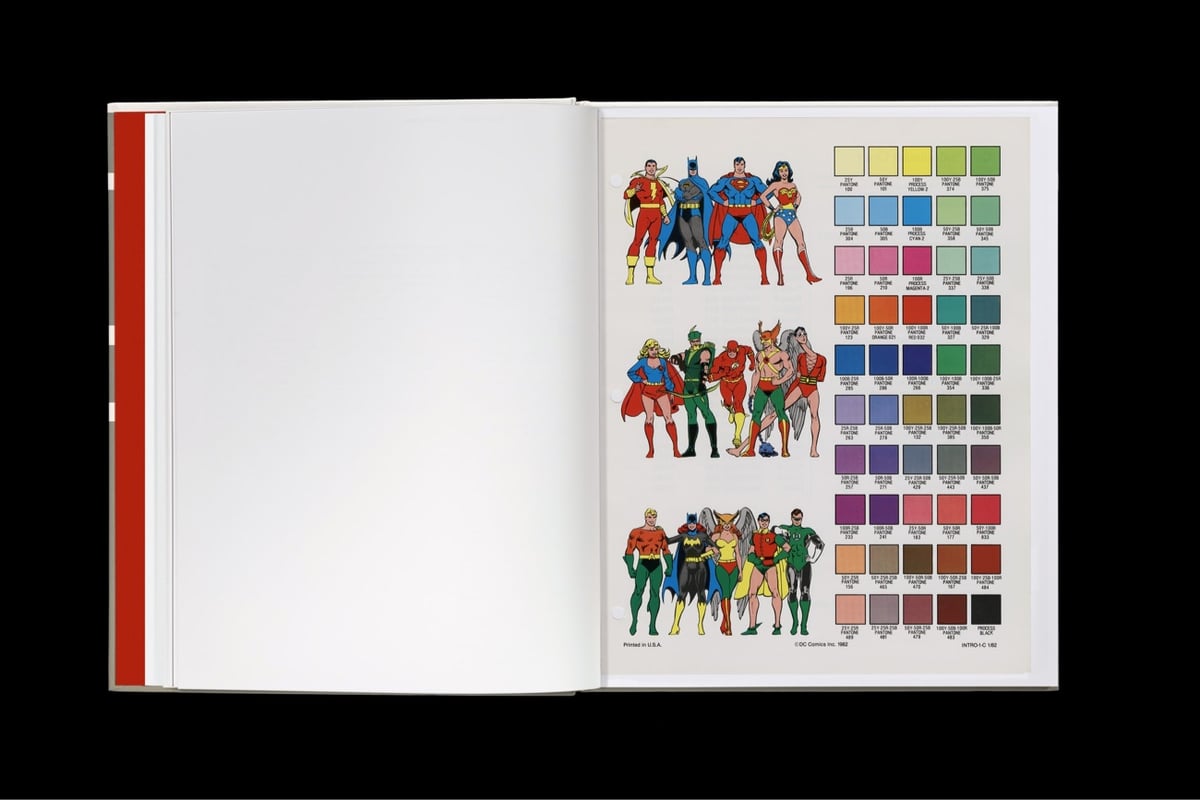

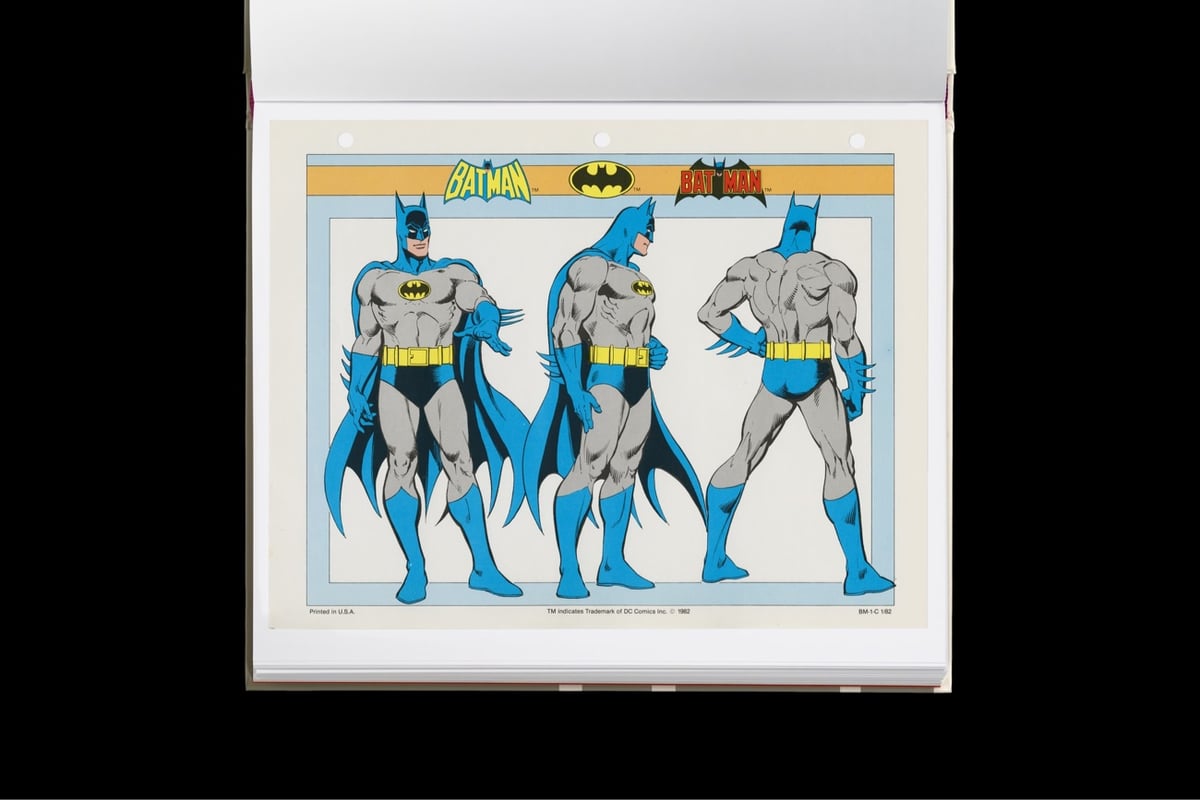
Standards Manual is gearing up for a new release: a reproduction of the DC Comics Style Guide from 1982.
Reproduced from a rare original copy, the book features over 165 highly-detailed scans of the legendary art by José Luis García-López, with an introduction by Paul Levitz, former president of DC Comics.
First issued in 1982, the Style Guide aimed to assist licensees in delivering a consistent look for DC’s Super Heroes. The reissue is based on the original copy held by Standards Manual, containing an amalgam of pages added by the owners of the original from ‘82 to ‘85.
Comics nerds, get in there.
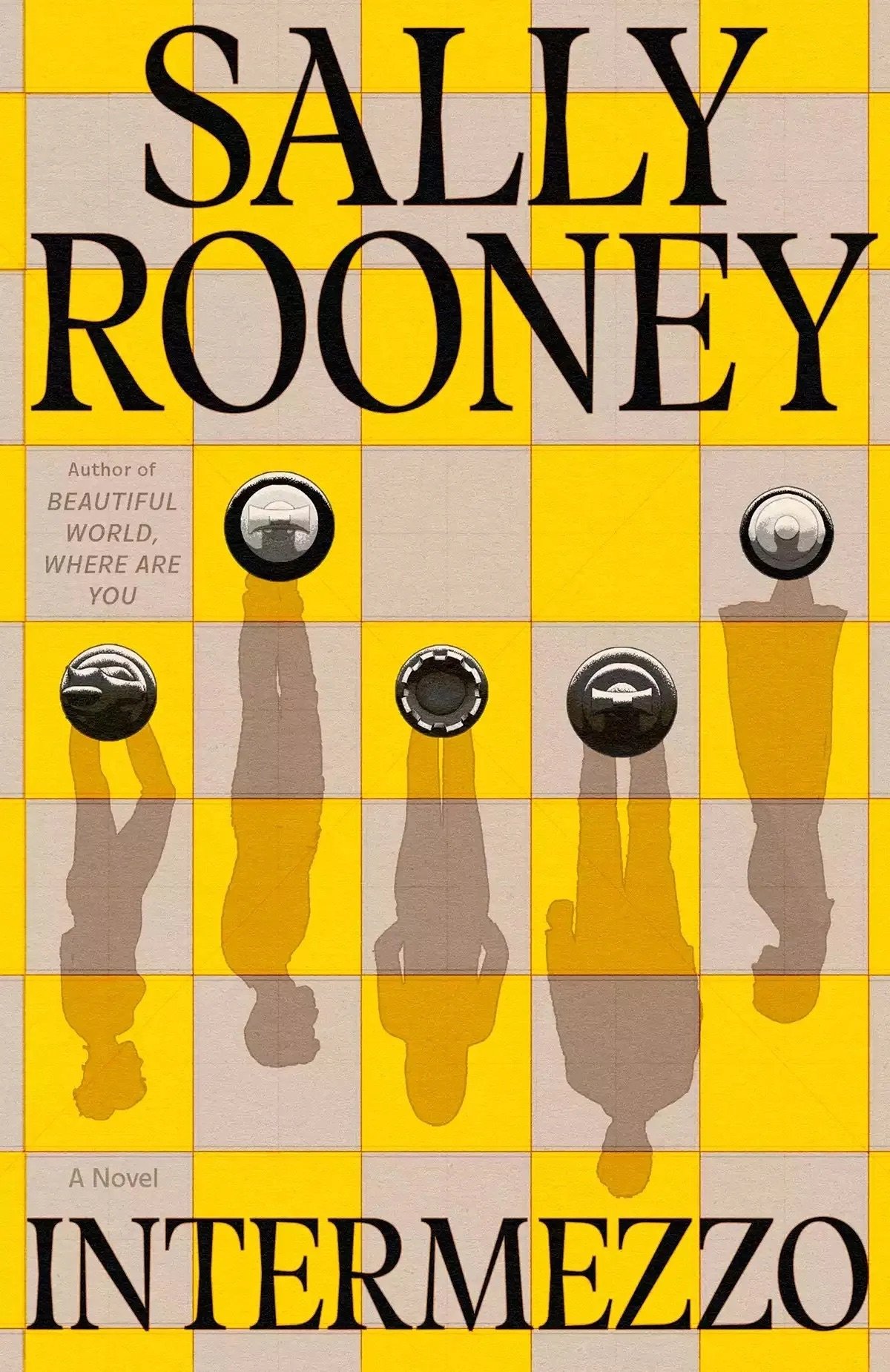
Oh, there’s a new Sally Rooney novel coming out just a few days before my birthday? Now you all know what to get meeeee. It’s called Intermezzo and here’s the synopsis:
Aside from the fact that they are brothers, Peter and Ivan Koubek seem to have little in common.
Peter is a Dublin lawyer in his thirties — successful, competent, and apparently unassailable. But in the wake of their father’s death, he’s medicating himself to sleep and struggling to manage his relationships with two very different women — his enduring first love, Sylvia, and Naomi, a college student for whom life is one long joke.
Ivan is a twenty-two-year-old competitive chess player. He has always seen himself as socially awkward, a loner, the antithesis of his glib elder brother. Now, in the early weeks of his bereavement, Ivan meets Margaret, an older woman emerging from her own turbulent past, and their lives become rapidly and intensely intertwined.
For two grieving brothers and the people they love, this is a new interlude — a period of desire, despair, and possibility; a chance to find out how much one life might hold inside itself without breaking.
According to her UK publisher, here are the novel’s opening lines:
Didn’t seem fair on the young lad. That suit at the funeral. With the braces on his teeth, the supreme discomfort of the adolescent.
Already hooked. You can preorder Intermezzo at Amazon or Bookshop.

Edith here. For the latest installment of my newish illustrated column, I spoke with Rex Parker, a.k.a. Michael Sharp, of the beloved crossword puzzle blog Rex Parker Does the NYT Crossword Puzzle. (I started following relatively recently but now read it daily, leaving it perpetually open on my phone.) Sharp also teaches English Literature at Binghamton University, runs a vintage paperback blog called Pop Sensation, and tweets about The Lamps of Film Noir at The Lamps of Film Noir.
Rex, have you read (watched, listened to, or otherwise experienced) anything good recently?
Sure. Lots of stuff. My best friend and I decided to read all of Proust this year. We’re way behind already, but I have read Swann’s Way, the first of the seven volumes, and it’s exquisite. And hilarious. I did not expect Proust to be hilarious.
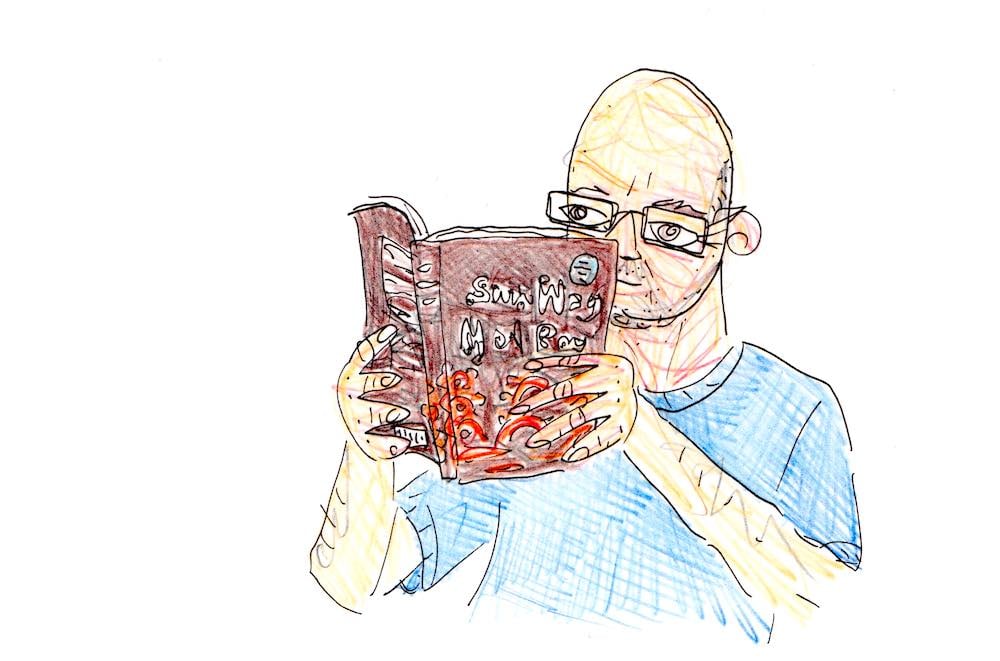
What’s something you’ve read or seen that changed your life, even in a small way?
I was buying something at my college bookstore in ’90 or ’91 and there was this amazing point-of-purchase display for a a new line of crime fiction from Vintage called “Black Lizard.” The display was a cardboard standee with this set of amazing-looking novels housed inside, covers facing out — black-and-white stills (evoking midcentury B movies) with bright slashes of color across them that featured the authors and titles. I’d never heard of any of them, but there were blurbs from people like Stanley Kubrick on them. They were so beautiful, so striking … they struck some chord in me that I didn’t know was there. I would later recognized this chord as “Noir.” I bought two of those books on the spot: Pop. 1280 by Jim Thompson and The Burnt Orange Heresy by Charles Willeford. I read them both immediately, in two gulps, faster than I’d ever read anything (I’m a slow reader).
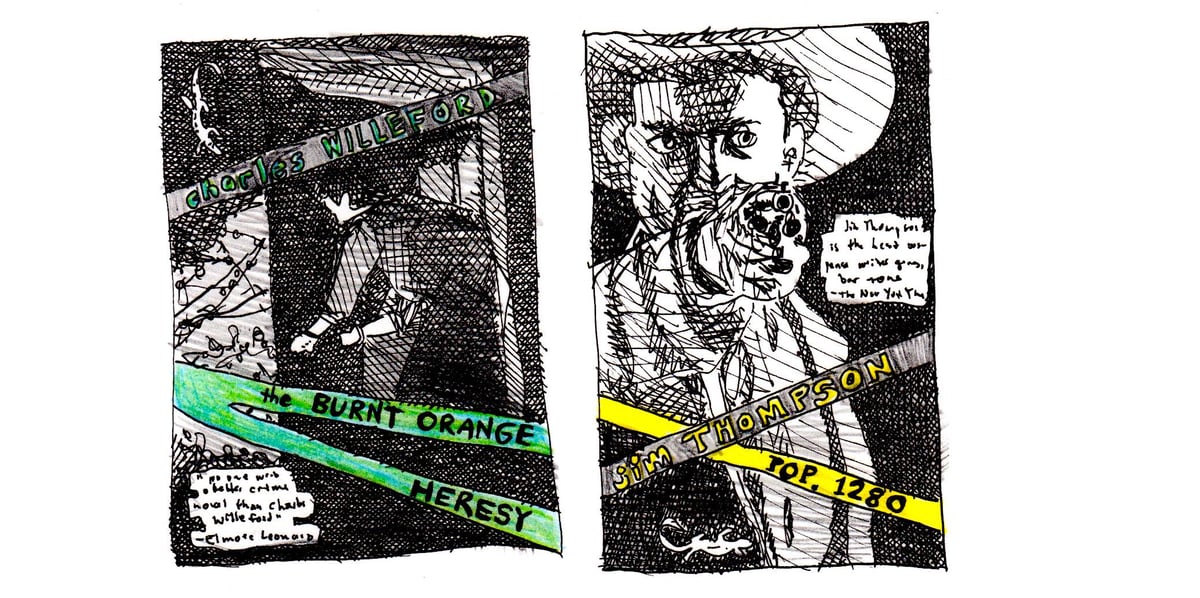
Five years later, the Robert Polito biography of Jim Thompson, Savage Art, came out and was a big splash. *That* book changed my life — it featured a photo spread of all Thompson’s paperback originals, the 25-cent pocket books with lurid covers and taglines. I was mesmerized. I knew I couldn’t afford Thompson originals, but at some point, I thought, “Well, there must be lots of other paperbacks out there from this same era, with this same look, that I *can* afford.” And I marched right into downtown Ann Arbor, to the first used bookstore I came to, and started my vintage paperback collection right then and there (a collection that’s at about 3,000 books at the moment). The first one ever bought was called Louisville Saturday, which I wrote about here.
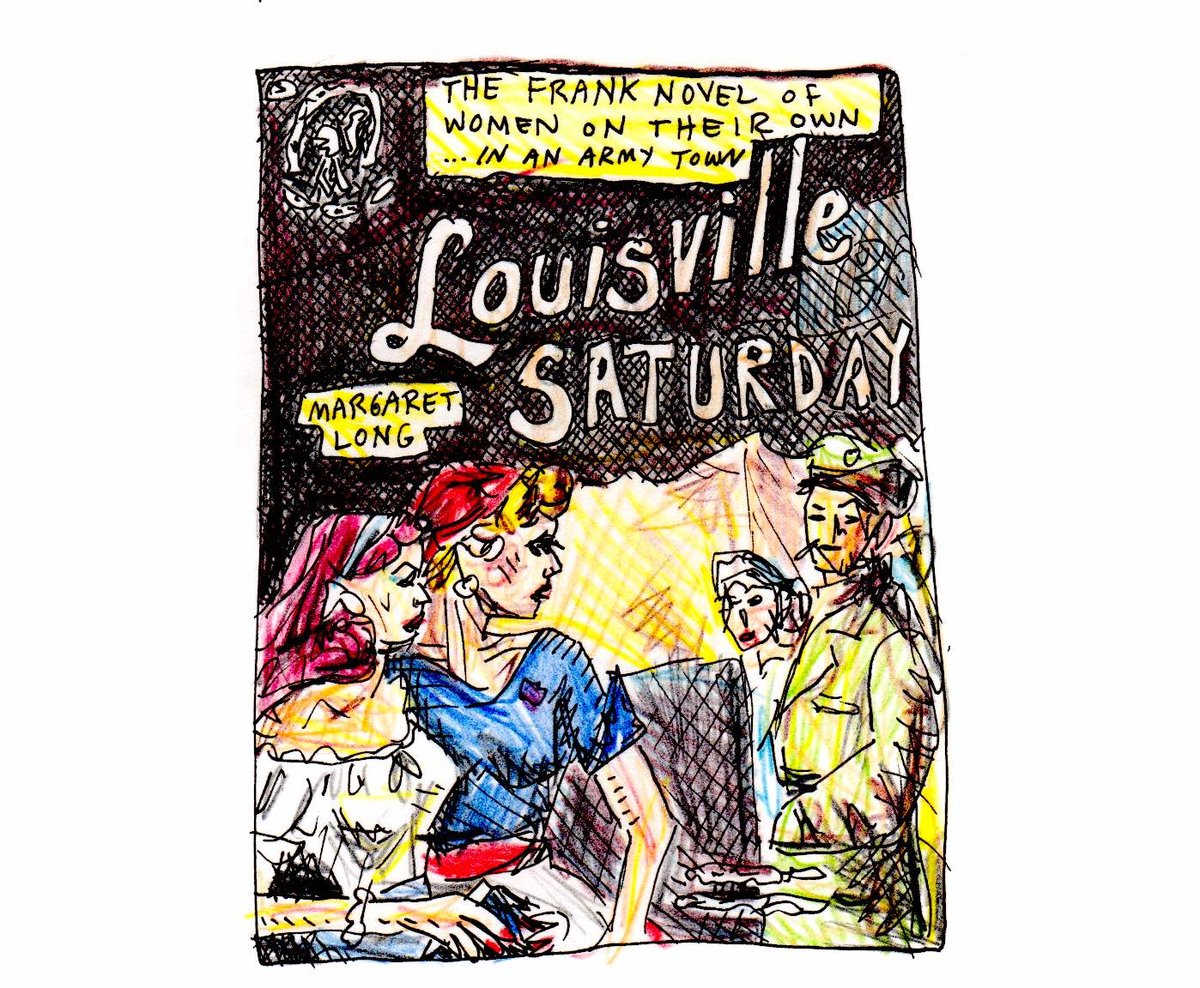
Do you subscribe to anything you don’t read?
Of course. Mostly Substacks I *want* to read but just don’t seem to get around to. Maybe this summer? (Maybe not.)
Read anything you don’t subscribe to? Like, are there paywalls you’re always skirting?
I don’t skirt paywalls. As someone who relies on his own readers for a good part of his income, I believe in paying for the media you consume.
Do you have a favorite newsletter?
Vince Keenan, former editor-in-chief of Noir City, has a noir-themed newsletter I like.
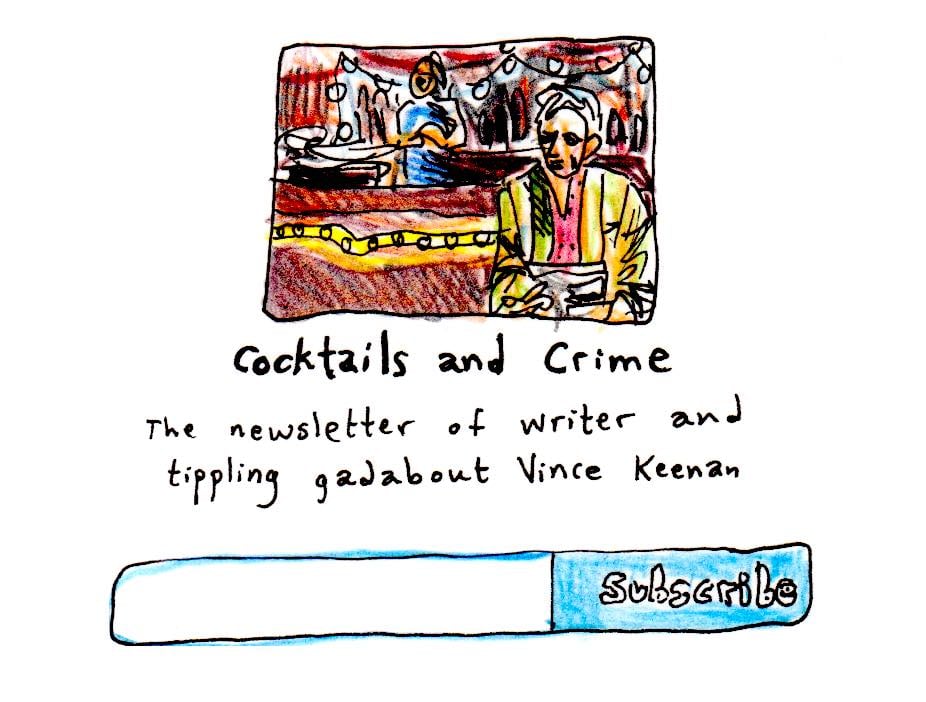
Scott Hines’s Action Cookbook Newsletter is fun. Those are both newsletters with regular cocktail content, which keeps me coming back.

Have you ever lied about reading or watching something? Or felt tempted to lie about it?
The great thing about getting old is that I do not give a fuck about whether anyone thinks I’m well read or up on current shows. So no, no lying, as a rule.
Are there any cultural moments you currently think about unusually often? A song lyric, a moment from a TV show, or anything like that?
There are thousands. I don’t know how to pick one. If I can call the first decade of “The Simpsons” one cultural moment, yes. That show rewired my brain. It was the best thing on the air by light years. I still can’t believe it was real, let alone (somehow) still on the air thirty+ years later. So much about the way I write, think, teach, etc, comes from being immersed in that show for years and years. Not just direct quotes, but my whole sense of humor, my sense of timing. So many great, great, funny writers and performers were at the core of that show, from Conan to Albert Brooks to Phil fucking Hartman. And it was a show that didn’t treat women horribly. You could feel the affection that show had for Marge, and especially Lisa, who is an icon. My personal hero. That first decade was truly miraculous to me. The only thing that compares in live-action shows, for me, is “Freaks & Geeks,” which lasted just one glorious season. Again, I can’t believe something so perfect ever even made it to air.

What were you really into when you were 12?
Sadness. Donkey Kong. And The Motels — I listened to the album “All Four One” over and over and over and over. Martha Davis was my first celebrity crush. No, second. Olivia Newton-John was first.
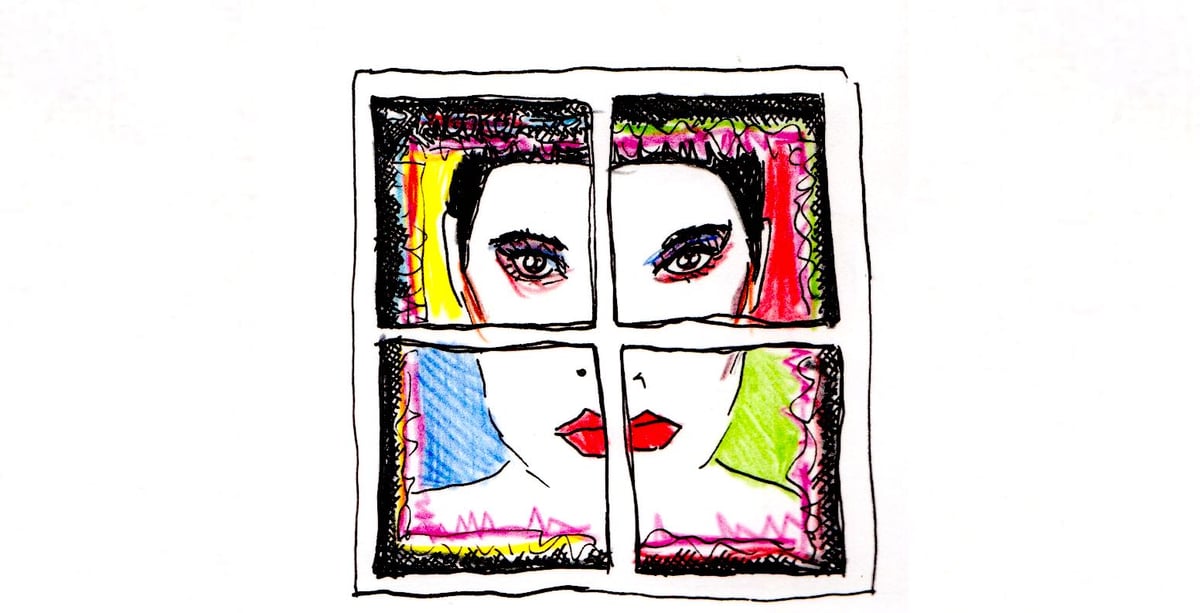
Is there a book/movie/whatever you’d like to experience again for the first time?
Not really. Maybe The Long Goodbye, which is my favorite novel, but I actually enjoy rereading it every year. I enjoy knowing it so well. I enjoy meeting sentences and paragraphs again like they’re old friends. You can’t get that on a first reading, obviously.
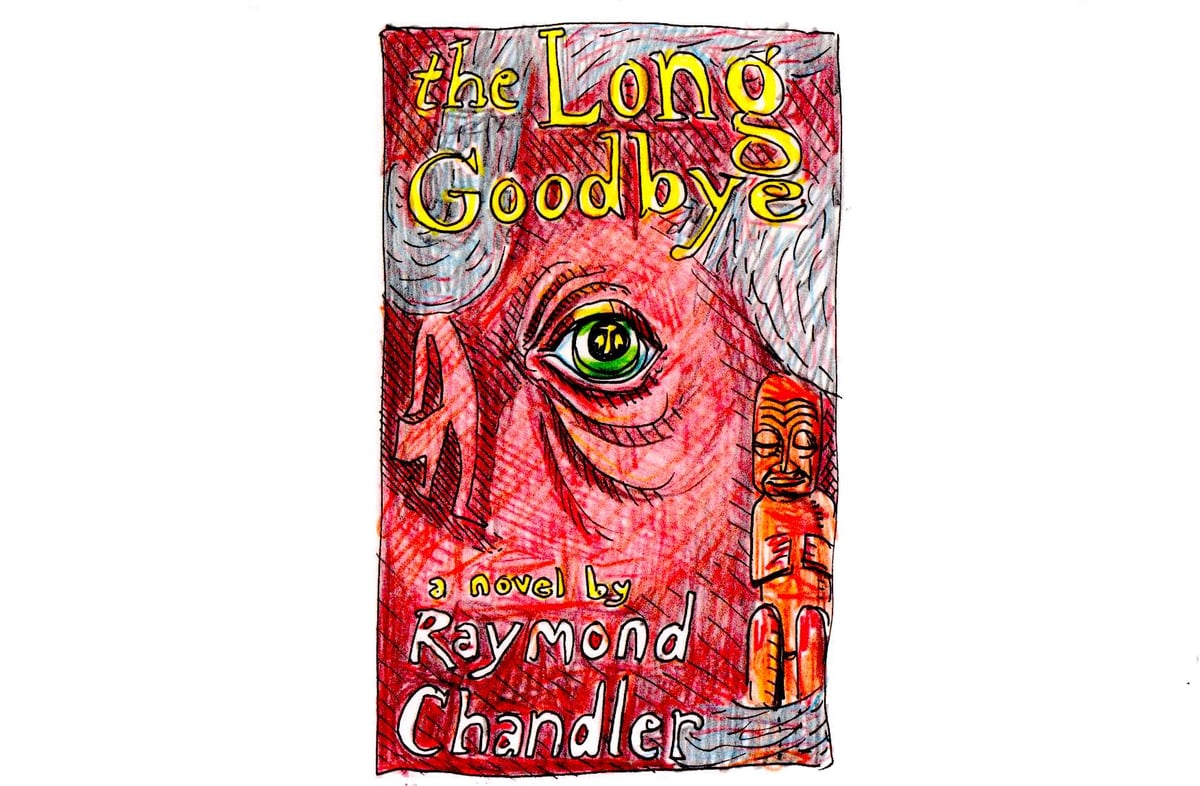
Is there something you wish your phone could do that it doesn’t?
Go away.

Please tell me something silly that you love.
My cats. They have such weird habits. Like, Alfie hates when you make the bed. He will not let you. Clean sheets are his enemy. No one knows why. Both cats have figured out that if you sit at the bottom of the stairs, you can look in the mirror on the closet door there and see the sliding glass door in the kitchen that opens onto the back deck (and vice versa). Sometimes I find the cats in these completely different parts of the house, one in the kitchen, the other at the bottom of the stairs, just staring at each other in that mirror. I’m like “buddy, you can just go in the next room and see Ida in person,” but no. Mirror staring. Cats are ridiculous, which is why they’re great.

Thanks, Rex! Rex’s crossword blog can be found here. And past Drawing Media installments can be found here.
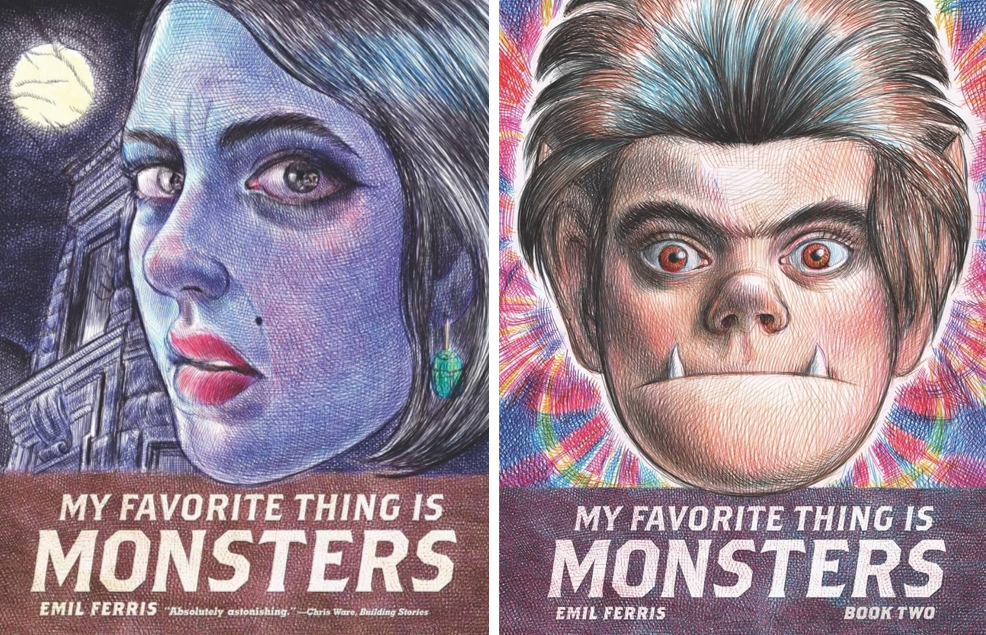
Maybe I can piggyback this on the Hot Frank Summer we’re all about to have/are currently having (I’m doing it!), but I did reread Emil Ferris’s fantastic graphic novel in advance of Part Two coming out TODAY, and it only gets better on a second reading. Plus there’s a Frankenstein tie-in, too, so…
There are also cool new features on Ferris in Vulture and WaPo, as well as some sweet Part Two micro teasers on Desert Island Comics’ Instagram.

Hey, I took the week off last week! But I missed it here and am glad to be back. Here are a few things I enjoyed while I was gone:
1. Emily Gould’s ranking of 15 recent children’s books written by celebrities, in The Cut. For instance, No. 15 (lowest):
Finally, it’s here, the book everyone has been clamoring for: woke retellings of Aesop’s fables, by Oscar-winning actress Natalie Portman! In Portman’s version of “The Three Little Pigs,” the first two pigs unwisely build their houses out of fast-food leftovers and plastic drinking straws. The wolf blows their houses down to warn them that only sustainable, environmentally friendly building practices are acceptable.
Lol.
2. This little half factoid, teased on the Iowa Quilt Museum’s Instagram: “The Double Wedding Ring is one of the most unfinished patterns in American history.” But why? Broken engagements? Is the design too ambitious? I can confirm that it was difficult even to draw.
3. The Most Misunderstood Emojis of 2024, in Axios. The revolving hearts don’t make the list, but maybe we cracked the code on those. 💞
4. “As was the case with alcohol, my first and last thoughts of the day are usually Scrabble related.” Brad Phillips’ essay in the Paris Review about swapping one addiction for another. “Editing this essay today, on six different occasions I’ve stopped to open ISC.RO [and play Scrabble]. Each time, I’ve played more games than I’d intended.” Also: “A common obsession is a powerful unifier, one that renders all other biographical information meaningless.”
San Francisco’s Arion Press still uses decades-old machines to make beautiful books by hand. They’re one of the few remaining presses in the world that do everything from start to finish — they even cast their own type.
Arion dwells in an almost extinct corner of the book world: Call it Slow Publishing. It produces only three books a year, each a unique art object reproduced in editions of less than 300. Art is so important, in fact, that the illustrators-art-world luminaries-drive the title selection process.
“We learned that the projects went a lot more smoothly when we said to the artist, ‘What do you want to do?’” Blythe said.
Anthony Bourdain visited Arion in 2015 for a online series called Raw Craft — it’s a great look at how and why they produce books this way:
Business Insider’s Still Standing series recently profiled Arion as well:
(thx, stephen)
Stay Connected